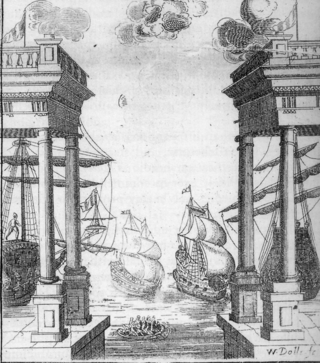This article needs additional citations for verification .(April 2019) |
| |||
|---|---|---|---|
| +... | |||
This article contains information about the literary events and publications of 1674.
This article needs additional citations for verification .(April 2019) |
| |||
|---|---|---|---|
| +... | |||
This article contains information about the literary events and publications of 1674.

Sir William Davenant, also spelled D'Avenant, was an English poet and playwright. Along with Thomas Killigrew, Davenant was one of the rare figures in English Renaissance theatre whose career spanned both the Caroline and Restoration eras and who was active both before and after the English Civil War and during the Interregnum.
This article contains information about the literary events and publications of 1732.
This article contains information about the literary events and publications of 1692.
This article presents lists of the literary events and publications in 1673.
This article contains information about the literary events and publications of 1667.
This article presents lists of the literary events and publications in 1664.
This article contains information about the literary events and publications of 1660.
This article contains information about the literary events and publications of 1642.
This article contains information about the literary events and publications of 1638.
This article contains information about the literary events and publications of 1637.
This article contains information about the literary events and publications of 1636.
This article contains information about the literary events and publications of 1635.
The Tempest, or The Enchanted Island is a comedy adapted by John Dryden and William D'Avenant from Shakespeare's comedy The Tempest. The musical setting, previously attributed to Henry Purcell, and probably for the London revival of 1712, was very probably by John Weldon.

The Restoration spectacular was a type of theatre production of the late 17th-century Restoration period, defined by the amount of money, time, sets, and performers it required to be produced. Productions attracted audiences with elaborate action, acrobatics, dance, costume, scenery, illusionistic painting, trapdoors, and fireworks. Although they were popular with contemporary audiences, spectaculars have earned a reputation from theatre historians as vulgar in contrast to the witty Restoration drama.
The year 1674 in music involved some significant events.

The Duke's Company was a theatre company chartered by King Charles II at the start of the Restoration era, 1660. Sir William Davenant was manager of the company under the patronage of Prince James, Duke of York. During that period, theatres began to flourish again after they had been closed from the restrictions throughout the English Civil War and the Interregnum. The Duke's Company existed from 1660 to 1682, when it merged with the King's Company to form the United Company.
Thomas Duffet, or Duffett, was an Irish playwright and songwriter active in England in the 1670s. He is remembered for his popular songs and his burlesques of the serious plays of John Dryden, Thomas Shadwell, Elkanah Settle and Sir William Davenant.

The Mock Tempest, or the Enchanted Castle is a Restoration era stage play, a parody by Thomas Duffet; it premiered in 1674, and was first printed in 1675 by the bookseller William Cademan. In creating his farce, Duffet's target was not Shakespeare's famous play, but the adaptation of it that John Dryden and Sir William Davenant wrote in the 1660s. According to critic Michael West, "There are frequent nautical metaphors, and 'more noyse and terrour than a Tempest at Sea'...."
Nationality words link to articles with information on the nation's poetry or literature.
Nationality words link to articles with information on the nation's poetry or literature.
...in 1674, admitted to the Academy...
Huet was admitted to the Academy in 1674